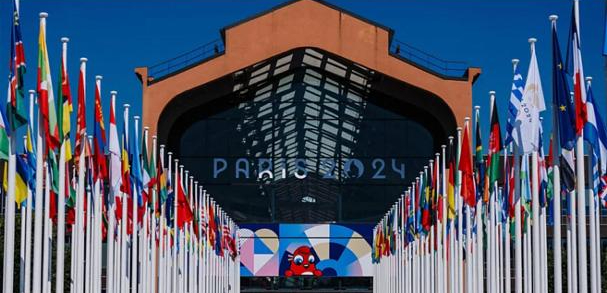With the start of the Olympic and Paralympic Games in Paris, over 200 chefs will face the challenge of preparing over 13 million meals. Here’s a glimpse into what the athletes will be served.
The commencement of the Olympic Games in Paris on July 26 marks several milestones. For the first time, the event will feature breaking as an official sport, and there will be equal numbers of female and male competitors.
Additionally, located in France, it’s fitting that the Olympic Village will host the largest restaurant in the world. Serving 15,000 athletes from 208 different territories and nations is an immense undertaking. Two hundred chefs will be busy preparing up to 40,000 meals daily across the Olympic Village restaurant and 14 other competition venues around the city. Throughout the 15-day durations of the Olympic and Paralympic Games, these chefs will serve a total of more than 13 million meals, an amount comparable to what is provided at ten football World Cups.
The Cité du Cinéma film studio complex in Saint-Denis, on the fringes of Paris, serves as the central hub for this remarkable culinary operation. Athletes will find six primary sections dedicated to various cuisines including French, Asian, Afro-Caribbean, and international, featuring 500 diverse recipes to cater to all palates. Menus have been collaboratively designed with former French sailor and bronze medalist Hélène Defrance, now a nutritionist, who has concentrated on creating “ an overall pleasurable, nourishing offering that would satisfy any type of diner,” she noted. She has meticulously focused on the quality and transparency of the ingredients, alongside enhancing the flavors and visual appeal of the dishes.
A rigorous quality charter was established for the food served at the Paris Olympics, crafted over four years with the aim to reduce the meal’s carbon footprint by half compared to the London 2012 Games. Consequently, one quarter of all ingredients will be sourced within a 250km radius of Paris, and 20% will be certified organic. All meat, milk, and eggs will originate from France, and a third of the offerings will be plant-based. Additionally, two hundred stations for water, juice, and soda have been set up in the Olympic Village, and only reusable cups and dishes will be used.
Nathalie Bellon-Szabo, Global CEO of Sodexo Live!, which is the official partner of the Olympic Village, said “Our commitments to social and environmental progress will ensure that we help Paris 2024 to achieve the important challenge of delivering the most sustainable Games,”
As the world watches Paris, the stage is perfectly prepared for showcasing French culinary heritage. In its commitment to providing a variety of international dishes, Sodexo Live! has enlisted the talents of celebrated chefs Amandine Chaignot, Alexandre Mazzia, and Akrame Benallal. Each chef has crafted a signature dish that combines the finest of French traditions and local ingredients, while also addressing the nutritional requirements of elite athletes.
“I believe that there’s an important health aspect to French gastronomy,” Defrance said, noting that in France, a love of good food can be found anywhere from “the village bakery [to] the fine dining restaurant” and even at “high-quality grab-and-go” options. “The entirety of the culinary approach of French chefs will be infused, in little touches, into the offerings on the whole. And the athletes will be able to take advantage of it all.”
To fulfill this commitment, the chefs will be supported by Charles Guilloy, the Executive Chef of the Olympic and Paralympic Village, who is known as the “chef of chefs” throughout the Games.
“We’re going to be a bit like athletes,” Guilloy said of his job. “It’s kind of my way of participating in the Olympics.”


























































